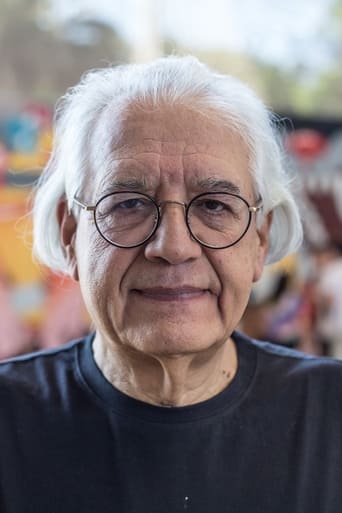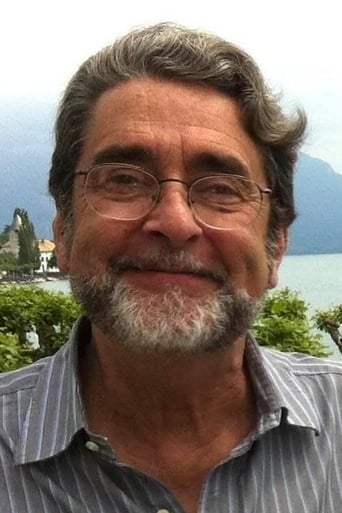KnotMissPriceless
Why so much hype?
Exoticalot
People are voting emotionally.
Sexyloutak
Absolutely the worst movie.
Erica Derrick
By the time the dramatic fireworks start popping off, each one feels earned.
d7eb2000
This is a film about the insistency of memory. It is both an elegant and forceful film. As elegant in its way as a documentary as Alain Resnais's film, La Guerre est Finie. In that film the Communist, Yves Montand's character, returns to France and remembers his past. So Guzman returns to Chile once Pinochet is no longer dictator Guzman can not and will not forgot the enormous harm that the right wing did to his beloved country. Nor will he forgot the personal losses and particularly the murder of his cameraman, Jorge Muller, on his earlier film, The Battle for Chile. He is back in Chile to,screen his long repressed documentary on how the right wing set the stage for the military overthrow of a democratically elected President, Salvador Allende. Guzman visits with Jorge's father, Rodolfo Muller, and talks about Jorge's death in the National Stadium in the first days of the coup.I knew Jorge from working on an earlier Amercan made film about the election of Allende called Que Hacer. I was horrified to learn of Jorge's death and appalled by the coup. I found the film both personally moving as well as a finely,wrought piece of art
MartinHafer
I was only 9 years-old when President Allende was overthrown in a bloody coup. So, my recollection of the events is naturally VERY sketchy. But, since I taught history, I know a bit more about the events than the average person my age. My advice is unless you are very acquainted with this period in Chilean history, you should first read up on it or, better, see the three-part documentary made by Patricio Guzmán--"The Battle of Chile".This film is a follow-up to these three films. Almost two decades later, Guzmán returns to Chile to interview survivors on the side of President Allende as well as to show his documentaries to young audiences and film their reactions. If you think about it, things have changed significantly in this country, as years ago, he'd have simply 'disappeared' if he'd been caught doing this.The interviews are rather touching but the part I thought fascinating was the HUGE difference between the younger students (they appeared to be high school age) and the college and graduate students. The younger crowd seemed to think that Allende's forced removal was for the best--even if the methods were undemocratic and cruel. As they see it, life is now quite good in Chile and the Marxist system wouldn't have been viable in the long run. The older group was pretty much the opposite--much more nostalgic about the Leftist government and they focused more on the evil way that folks with this political bent were persecuted. Much of this could be because the older group had SOME recollection of the events but also because the younger group seemed to be far less emotional and a bit more pragmatic. I am NOT making a value judgment one way or the other--just making an observation.Overall, a decent film if you understand the events which they are discussing. That's because the documentary doesn't really explain the full story and doesn't try to. While decidedly pro-Left in its sentiments is evident, it does NOT ignore contrary opinions and gives you things to talk about and consider. Worth a look.
Fergus27
Patricio Guzman has spent most of his adult life producing film of the fall of Allende in Chile. This film is as pro-left dishonest in its own way as are the pro-right films/books concerning Chile in the 1970's. At no time (perhaps I missed it) did I see any note concerning the fact that the Allende Government was a collaborative government of Socialists & Communists. Without active & massive communist support, Allende would never have been elected.I consider it impossible that one can watch this type of politically generated film and gain an understanding of the complexities of the times. At one point in the film, Guzman states that Allende wanted to make some basic "social changes." A slight understatement of "basic:" (1) Breakup of private land ownership; (2) nationalization of various industries; (3) ousting of all foreign ownership in Chilean companies (as was normal for Socialist/Communist takeovers - no or minimal payout to the foreign owners who has forked over the capital to invest in Chile).......etc.etc.
Milhaud
Not only is the subject interesting but the way the movie has been directed too. The film is built around parallels between today (1997) and Salvador Allende's time in Chile (1970-1973), including Pinochet's coup d'état. We see many people, many places, then and now (Patricio Guzmán was a filmmaker in Chile at that time). We hear all the way Guzmán's uncle trying to play Beethoven's Moonlight Sonata with his 80-year-old fingers and his failing memory, which gives a special color to the whole film. We also hear many thoughtful reflections from interesting people about memory. The final part, where we can see students watching the documentary about Allende's time and the coup, and learn and reflect about the history of their own country, is very moving.One must say however that the way Allende's experience is presented is one-sided. People are correct when they say that Allende and his supporters had a dream about democracy and justice, but nowhere is there any hint that at the time of the coup, the country had been in a social and economic chaos for two years because of Allende's poor results as a government. Of course, that can't excuse Pinochet's regime, but it could have added a useful dimension to the whole story. Anyway, the movie is not an apology for Allende as much as a reflection about remembering painful personal and collective events after almost a quarter of a century.

